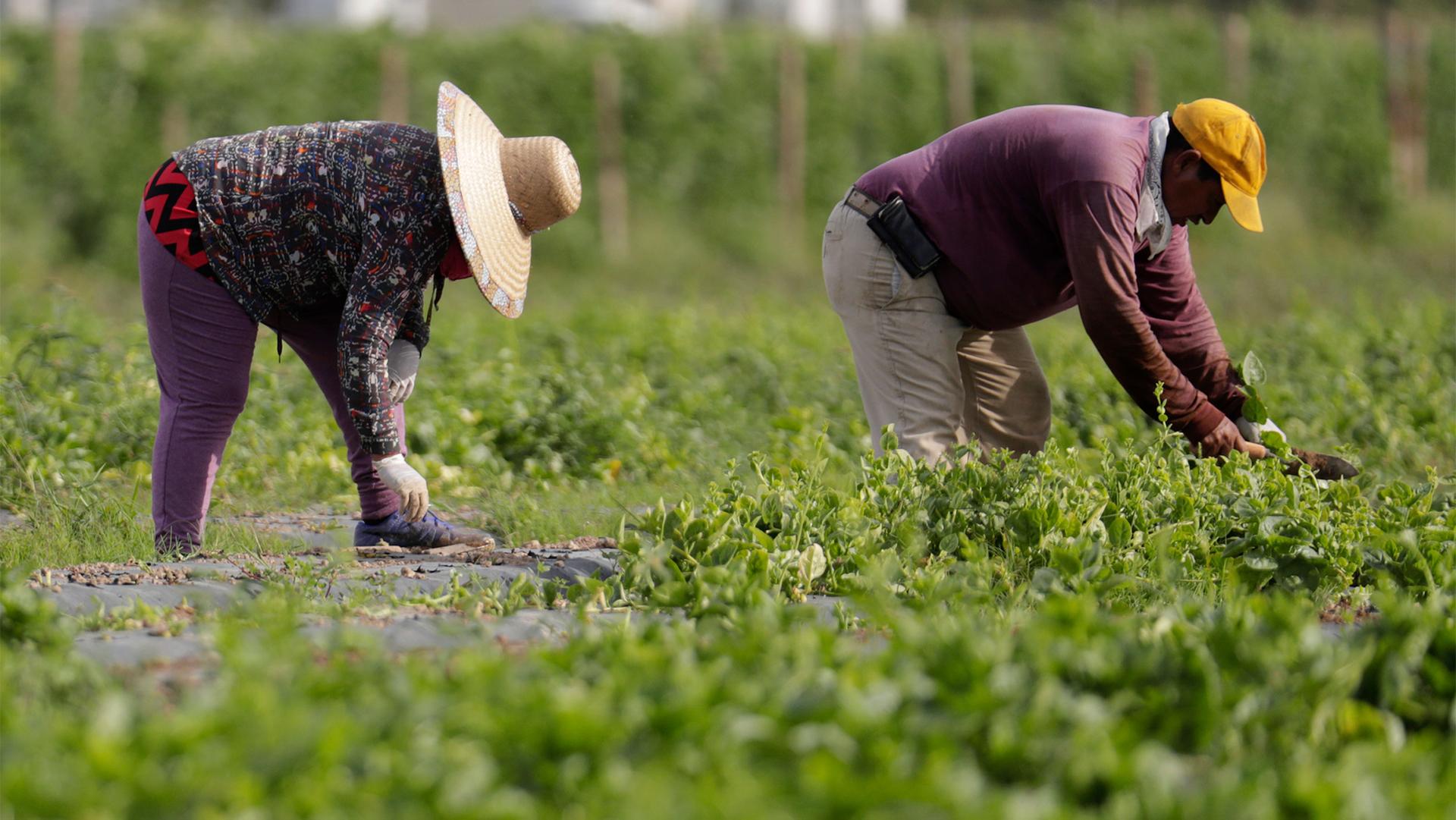Three years ago, in Homestead, Florida, fieldworker Sofia spent several hours outside in 90-degree heat, cultivating shrubs, bushes and other ornamental plants — when her vision suddenly blurred.
“I was working and suddenly everything went white, and I fell,” she said.
She started to vomit and couldn’t get back up.
Sofia, who’s undocumented, and asked to use her first name only, said she was suffering from heat stress — the second time that week. She was also covered in long sleeves, wore heavy boots, a wide-brimmed hat, and a bandana covered her mouth and nose — all adding an additional 10 degrees to her body, she said.
Sofia is among 2.4 million farmworkers in the US who are now asking the federal government for heat safety standards. Many are undocumented, some have work visas — but all of them do manual labor outside in all types of climate conditions.
Sofia recovered, but other co-workers have experienced much worse. Some ended up in the hospital, while others in other parts of the country have died, she said. Soon after her second heat-related incident, Sofia left that job. Today she’s packing green beans and picking peppers.
Related: Migrant farmworkers in US deemed essential — but lack basic protections
Workers like Sofia want paid water breaks, shaded areas to rest and protection from retaliation if they speak up.
Workers like Sofia want paid water breaks, shaded areas to rest and protection from retaliation if they speak up, said Amy Liebman, director of environmental and occupational health with the Migrant Clinicians Network, a national group focused on health justice for migrant and immigrant communities.
“There is a long history of what we call farmworker exceptionalism, where farmworkers receive fewer protections than other workers,” she said.
Lawmakers in Congress have tried — for years — to improve protections. They’re trying again this year with the Asunción Valdivia Heat Illness and Fatality Prevention Act. It is named after Asunción Valdivia, who died from heat stroke in 2004 after picking grapes for 10 hours straight in 105-degree temperatures.
The proposal would require the Occupational Safety and Health Administration (OSHA) to establish enforceable standards to protect workers, and also direct employers to offer training for their employees.
Related: Farmworkers are getting coronavirus. They face retaliation for demanding safe conditions.
But Liebman said that many employers resist more regulations, making it harder to enact change. So far, Liebman said, only California, Minnesota and Washington state have such heat standards in place.
“And, you know, California has an incredibly robust farming economy and it has not gone under as a result of a standard protecting workers. And so it can be done nationally,” she said.
Scientists are also concerned. Ricardo Salvador, senior scientist and director of the food and environment program with the Union of Concerned Scientists, says climate change is intensifying heat-related sickness and deaths.
Related: Climate change is the overlooked driver of Central American migration
“So this is only going to get worse because as the temperature increases, you’re not only going to have more hazardous conditions, they’re going to increase exponentially.”
“The pandemic has actually pulled back the veil on how exploitative our food system is.”
Today, Salvadorsaid, people are at least paying attention to how climate affects farmworkers. And the past year showed a lot more.
“Precisely because there’s greater awareness, the pandemic has actually pulled back the veil on how exploitative our food system is,” he said.
This awareness, Salvador said, could encourage lawmakers to act.
The earlier the government does so, the better, said Juanita Constible, senior climate and health advocate with the Natural Resources Defense Council, a nonprofit group focused on environmental movements. If we put these kinds of safeguards in place, they’ll have ripple effects beyond just heat, she said.
Related: Farmworkers are now deemed essential. But are they protected?
“Protecting their [workers’] right to organize in the workplace makes them safer from all sorts of things,” Constible said.
Meanwhile, advocates are making sure those in the fields know about heat stress and how to recognize it.
“The time is now for us to be seen as human beings.”
Some workers don’t see the signs, or they’re afraid to speak up and let their employer know they need more water and to cool down, said Elvira Carvajal, an organizer with the Alianza Nacional de Campesinas, a nonprofit working with female farmworkers and the issues that impact them.
Carvajal, a former farmworker in Homestead, Florida, said the working conditions have not changed since she worked picking lemons more than a decade ago. She visits farmworkers at their job sites and encourages them to speak up. It’s important for workers to advocate for themselves, she said.
But, she said, the US government also has a role to play.
“The time is now for us [farmworkers] to be seen as human beings,” she said.
